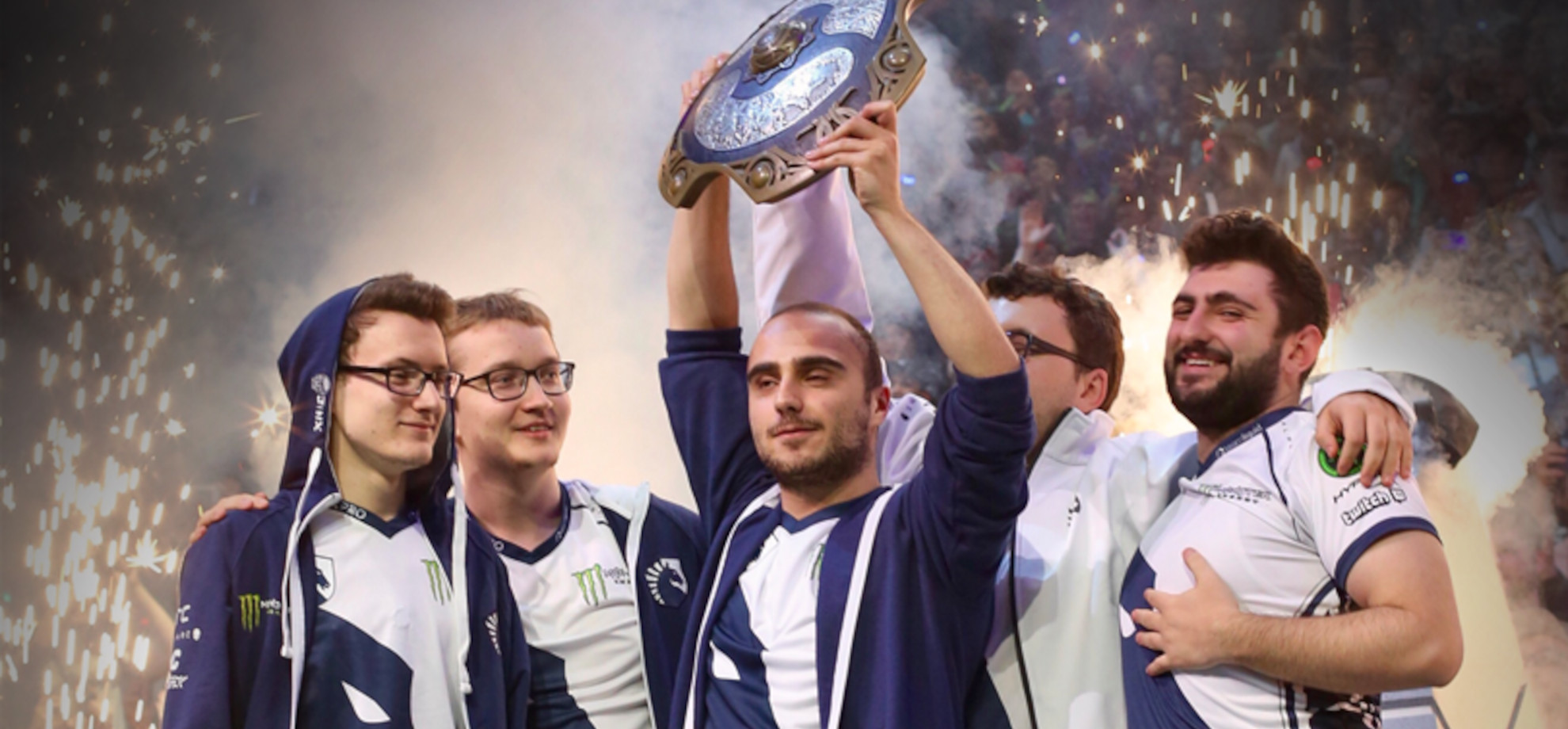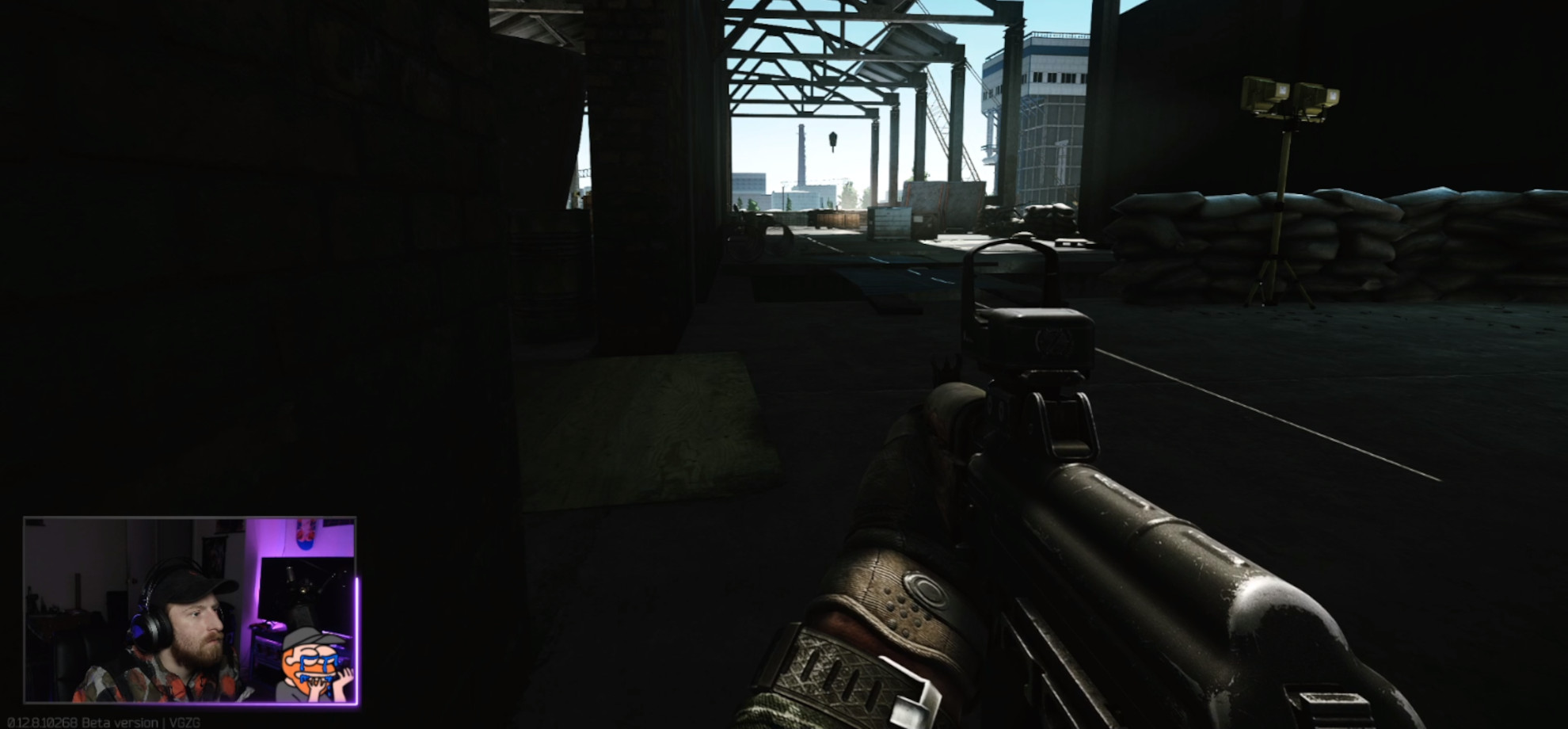What is It Like to Be an eSports Player?
With eSports more popular than ever and eSports betting becoming a huge deal around the world, we recently put together a guide to eSports.
In that guide, we touched on the whole “video games are for kids” thing, which is actually a myth. The average gamer is a full-grown adult.
But you may be wondering about eSports players themselves. Aren’t they a bunch of kids? And should you really be wagering money on whether a bunch of kids playing a video game can trounce a bunch of other kids playing that game?
Actually, the life of a professional gamer is quite a bit different from what many people imagine.
Let’s find out more about what it is like to be an eSports gamer. When you realize what these “kids” go through to compete, you will probably not question their dedication ever again.

This is Team Liquid. While yes, there are a couple younger dudes there, that dude on the far right is a grown ass man!
And the guy in the middle? Pretty sure he’s balding!
Who is the Average Professional Gamer?
The average eSports player is young. That much is a fact.
Here is an ESPN article that analyzed 126 CS:GO players, 117 League of Legends players, 49 Starcraft II players, and 37 Super Smash Bros. players.
The average ages across the board were early to mid twenties. The oldest were the Super Smash Bros. melee players, with 25.2 being the average age.
Next were the CS:GO players, with the average age being 23.4.
Just marginally younger on average were Wii U Super Smash Bros. players, who were 23.2 years old on average.
Starcraft II pro gamers were 23 years old on average.
Youngest were the League of Legends gamers, who were only 21.2 years old on average.
For reference, ESPN also mentioned the average ages of athletes in a number of traditional sports. That included MLB players (29.2 years old), NHL players (27.4 years old), NBA players (26.8 years old), and NFL players (26.6 years old).
When you think about it, eSports players are not that much younger than their traditional sports counterparts.
Well, most of them. Some have competed in eSports as young as age 12 or 13!
eSports players over the age of 30 are relatively rare, but they do exist.
Nevertheless, ESPN writes, “But overall, eSports players are significantly younger than their counterparts in other major sports. The average age of the opening day rosters in the most recent season at the highest professional level in football, basketball, baseball and hockey was higher than the average age of any of the eSports games we analyzed.”
So, are eSports players “kids?” Some of them technically are teens and pre-teens, yes. But the majority of them are in their 20s, so no, that makes them adults, albeit young ones. They are “kids” about as much as traditional sports rookies. So yes, there may be issues
with immaturity at times, but like traditional athletes, eSports players build up an abundance of life experience rapidly.
Why Are So Many eSports Athletes So Young?

It probably doesn’t help misconceptions that video game art is usually very cartoon-ish looking.
The reason for the average young age of eSports players has nothing to do with “games being for kids.” It has to do with burnout.
As CBS News explains, “While most 20-somethings have barely started their careers, many professional video gamers at that age are already nearing retirement. The peak of a professional eSports competitor is so short-lived that players often toss their controller and call it quits by the time they’re in their mid 20s.
The world of eSports is demanding, both physically and mentally. Professional gamers, barely past their teens, burn out even faster than athletes.”
The Professional Gamer Lifestyle is Relentlessly Grueling
And that brings us around to discussing what it is like to be a professional gamer. Many people who do not closely follow eSports have a very different idea in their heads than what is true.
You might think, “Wow, these kids play games for a living. They travel around the world, play the same games they were enjoying for fun before they started doing it as pros, and now they rake in millions of dollars. What a life!”
This is not an accurate portrayal at all though.
Yes, some professional gamers make millions, but the average salary is lower.
CBS reports, “While the grand prizes are big, players make an average salary of around $60,000. They often get housing subsidies, but the expectation is that they’ll be practicing more or less around the clock.”
$60,000 a year is, generally speaking, a decent salary for a typical job. But eSports is not a typical sport. It is a relentless grind.
CBS says, “Top competitors are playing 12 to 14 hours a day, at least six days a week, according Richard Lewis, a journalist who covers eSports.”
The Washington Post quotes pro League of Legends player Lucas Tao Kilmer Larsen explaining, “It’s definitely my dream job. But over time, it’s become more and more of a job… It isn’t as fun as anymore, I see it more of a job now.” The article adds, “He said he logs up to 14 hours of gameplay per day and only sees his friends ‘once a year, for five to eight hours.'”
12-14 hours a day of practice six days a week is already an insane grind, but there are other obligations and factors that also contribute to burnout.
Some of these include:
- Needing to put in additional required hours streaming online.
- Meeting with journalists and other members of the press.
- Meeting with sponsors.
- Interacting with fans.
- Travel time.
Just how many additional hours of online streaming are required? That depends on a player’s contract, but The Washington Post gives the example, “a person with knowledge of player scheduling from Team Liquid, a top eSports organization, said the team requires about 30 hours per month.”
Think about that. When do players find the time to put in an additional 30 hours a month of streaming? If you wanted to squeeze this in on your day “off,” you would need to do 7.5 hours each day!
So, physically and psychologically, being a professional gamer is exhausting. It requires a tremendous amount of stamina, especially if you have been at it for a while. The longer you try to sustain that kind of intense schedule, the more of a toll it will take. That also means making a lot of sacrifices. A lot of people in their early twenties would be spending time traveling, hanging out with friends, or dating. Aside from travel for work, professional gamers don’t get to really get out and see the world. Wherever they go to compete, they will spend most of their time practicing and competing, not seeing the sights.
As Larsen explained, seeing friends who are not on one’s team becomes a rarity , and for many pros, dating becomes impossible.
So, all of this is why most eSports professionals are so young. After a few years of the grind, many of them simply quit. They do so because they have given all that they have to give and also because they may want to pursue other aspects of their lives that they have not been able to with such demanding schedules.
Another Challenge: Adapting

In a perfect world, everyone would just be as happy as these guys are playing their games.
We have talked about what makes eSports demanding from a scheduling standpoint, and explained how many eSports players burn out after a few years because of the intense dedication required.
Now let’s talk about another challenge eSports gamers face: keeping up with the competition.
With any traditional sport, athletes and teams are always looking to adapt to their opponents strategies. But with eSports, the need to constantly adapt is taken to a new level.
There are a couple of reasons for this. One is explained by Wayne Chiang, Starcraft Brood War World Champion, who writes , “Although less demanding physically than normal sports, why eSports is considered a type of sport is the format of the competition. Once you’ve competed at the world class level, everyone is gunning after you with copies or counter strategies of what you’ve done and exploitation of your weaknesses. The less physical demands means that it’s easier for people to catch up if they have the potential to do so, so you’re constantly having to re-invent your strategies.”
In other words, the physical accessibility of eSports compared to traditional sports seems to result in more competitors having the ability to respond to how you play by duplicating your tactics or creating effective countermeasures.
This makes sense. An athlete who has a strategic advantage because of rare athletic ability (i.e. incredible long drives on the golf course) may be able to rely on the same strategies for longer before needing to adapt to specific competitors.
But with eSports, a lot of players are able to achieve the same approximate skill level with respect to reflexes, precision, and other physical aspects of play. Plus, there is an incredible amount of replay footage and streaming to follow for any particular player. So competitors can study that player’s strategies inside and out, rapidly adapting to them.
That requires each player to also rapidly adapt in return. An incredible degree of creativity is involved here, and the mental ability to keep moving forward and pushing outside of one’s comfort zone, knowing one can never rest for a moment.
Do eSports Gamers Get Injured?
You might think that professional gamers would be less prone to injury than most traditional athletes. To a large extent, that is true. It is unlikely for a professional gamer to get a concussion, for instance, at least not related to playing. But that does not mean that eSports players are not still prone to certain types of injuries on a frequent basis.
Carpal tunnel, for example, and other forms of repetitive strain injuries, are common.
Indeed, if you have any experience with these types of injuries, you know that:
- It only takes a few minutes of frantic typing or mouse use with poor wrist posture to produce an injury that can take weeks to heal.
- With no chance to rest the injured wrist, the time to heal can extend significantly. Weeks can easily turn into months. During that time, the wrist will be more prone to re-injury.
Naturally, a strained wrist or fingers or a hurt elbow or shoulder could significantly impair the performance of a player.
Along with these types of strains, eSports players may be particularly prone to back and neck problems as a result of spending so much time sitting in one place doing the same thing with few breaks.
For some players, these issues may also feed into head pain, including tension headaches, migraines, or other types of headaches. You might think that young people are not prone to these types of conditions, but that is not necessarily the case.
For one thing, a profession like this is a risk factor in and of itself. For another, some health conditions are prevalent in teens and younger adults.
Migraines, for example, can often start during teen years or one’s early 20s. The latter is particularly common among women.
Psychological Health Can Take a Hit Too

“Just talk it out.
Now, why do you want to marry your mother?”
Along with physical health concerns, eSports players also may struggle with their mental health. Some psychological issues which they may face can include:
- Stress
- Depression
- Anxiety
- Isolation
- Bullying
- Stalking
- Adjustment Issues
- The Regular Frustrations That Go With Any Sport
Given the extreme amount of pressure that players are under as well as their exhausting schedules, it is likely that many of them are perpetually at least somewhat stressed, and sometimes very stressed.
If a person is stressed or anxious for an extended period of time, sometimes it might lead to depression. So, this also seems like a psychological issue that professional gamers could be prone to.
When gaming turns into a career, with it can come a lot of daily anxieties about performance.
It might seem counterintuitive at first to suggest that players would be isolated, considering they are constantly surrounded by teammates, staff, the press, the public, and so forth. But they have very little time with friends or family, which could lead to loneliness, which could worsen other problems like depression, stress or anxiety.
Both in and out of competition, eSports players may be subject to bullying and harassment. Sometimes, this may come from other players, particularly while streaming. Sometimes, it may also come from “fans.”
In some cases, harassment can go pretty far. eSports players have reported fans desperately trying to be their friends or even date them. Some have also received death threats.
As we have discussed, constant strategic adjustments are necessary for a player to remain competitive. Also, getting into professional
gaming is itself a massive life adjustment. Both those micro adjustments strategically and that one huge adjustment can cause difficulties, especially for players who may not have very adaptive personalities.
Finally, professional gamers are subject to the same emotional challenges that regular athletes face. Disappointments with losses, hubris with wins, and everything in between can lead to a great deal of emotional turbulence.
None of this is to say that eSports players are inherently unhappy (or mentally ill, for that matter). Many of them really love what they do and find it extremely rewarding. But that satisfaction comes at a cost.

This guy here. He’s doing something he loves, but goes by the name realDPREST on Twitch.
Hopefully, it’s just a name!
How Long Do Pro Gamers Last?
We have mentioned a few times now that most players burn out within just a few years of becoming pros. But how long do they typically make it?
The Washington Post reports that pro gamers don’t really possess much power to change the industry to reduce work hours and improve overall conditions. The site says, “Players have little leverage to push back against any demands made by teams and software publishers, which run many of the eSports leagues. Playing careers are often brief and start at a relatively young age. In a 2016 interview, George ‘HotshotGG’ Georgallidis, owner of the Counter Logic Gaming team, said the average career length for a pro is ‘a year to two years.'”
Think about that — a whole career in professional gaming lasts only one to two years on average. That must be quite the roller coaster ride.
What Have We Learned About the Lives of Professional Gamers?
- eSports players are typically young, but they are serious, motivated professionals.
- The typical pro gamer does not make millions of dollars.
- eSports players put in ridiculous long hours, and have virtually no free time.
- Extreme mental and physical stamina is demanded by this job.
- The career of a pro gamer requires constant adaptation.
Thinking you are wagering on irresponsible kids playing games for kicks who might be winging it would be completely off. eSports athletes are no less reliable than their traditional sports counterparts.
With a typical salary of around $60,000, it is no wonder that professional gamers wash out within just a year or 2. It is likely that they would not last much longer even with higher salaries, but an upper middle income like that simply is not an adequate payoff for what is essentially a constant work schedule with no breaks.
They generally work 6 or even 7 days a week, often for 12 hours or more.
This is primarily mental stamina, but you should not underestimate the physical requirements of this job, especially after months or even years.
A player can never rest with a certain set of strategies or techniques. They must constantly come up with new methods.
Challenges and Opportunities for You as an eSports Bettor
Having just reviewed what we have learned about the lives of eSports players, let’s go over a few challenges and opportunities that you can expect while you are wagering on eSports.
- You will constantly need to be researching new eSports players, because old ones will wash out.
- You will need to constantly follow even eSports players you are familiar with, because their strategies may change rapidly.
- You can get a very good idea of how any particular player handles numerous situations.
- You can get a great feel for the psychology of any particular gamer.
- Learning about a particular team’s schedule can give you some insights into the pressures a player faces.
- You can follow streaming to find out how a player is weathering an injury or a rough life event.
You might learn everything there is to know about a particular player, and may profit off of what you learn. But there is a really good chance that within as little as one calendar year, that player will already be gone.
So, one of the challenges of wagering on eSports is but you need to be doing frequent research on new rising stars, because those you already know about will soon no longer be on the scene.
That also means that team dynamics can be changing constantly, with even greater variation from year to year than you see with regular sports.
You may know how a particular player handles certain scenarios today—but how they handle those same situations in the same game a year from now, six months now, even one month from now, may be radically different.
Indeed, some players may make massive adjustments to their tactics in a matter of weeks in order to stay competitive with those who have been studying their old strategies and adapting to them.
So, you can never assume you know what a player is going to do or how they will play against any other player until you are aware of the most recent changes they have been making. That will require you to keep up with extra research on an ongoing basis.
Thankfully, keeping up with the numerous adjustments that players make on a continual basis is actually not all that difficult, even if it might be kind of time consuming.
As already discussed, most professional gamers have some kind of streaming requirement that is part of their contract.
That means you can get on Twitch or another platform and watch exactly how that player is performing week after week, keeping up with the latest adjustments they’re making before competitive events.
You will be able to see exactly what strategies they are employing for different situations, what is working, what isn’t, and what players they perform well and poorly against. Of course, streaming matches that have no stakes (i.e. prize money to win) are going to play differently than competitive matches. Gamers do not have the same motivations when playing them, and also are in different environments than they would be when they are playing competitively.
In fact, it seems likely that some players would even deliberately mislead their competitors with how they play during their streaming.
By following streaming, you also can get an idea what a player’s mindset is like regarding some of their competitors as well as situations they might face in-game. You can find out how they handle frustration, losses, and victories. You also can monitor their ongoing mental health. Over time, you can start to figure out whether they are in a good mental place or a bad one, and how that might influence them in their next professional match.
Just keep in mind that emotions and reactions can differ significantly between streaming matches and ranked competitive events.
Something else you can do to get a better idea what any particular player or team is dealing with in terms of stress and stamina requirements is to do some research into how that team operates.
Find out what you can about travel, competition, and regular weekly practice schedules as well as other requirements stipulated in players’ contracts. The more you know about all of the above, the more context you will have for what state players might be in when they arrive to compete at an event.
Finally, one more advantage of being able to regularly stream matches is that you can check on how any particular player is coping with an injury or the fallout from another life event (i.e. a recent major loss) before betting on them.
Bet on eSports Now
We have now learned more about the ages, salaries, and challenges faced by professional gamers. Are you ready to use what you have learned about the lives of eSports players to make money betting on eSports?
You can visit our guide here to view our recommended sites for eSports betting. Good luck, and enjoy the fast-paced world of eSports!
For just a quick rundown of our favorite places for eSports, our top three are by far:
Bovada

As you look around the site, you’ll see that Bovada is constantly topping the list on our favorite sportsbooks.
One of the most honest and reliable sportsbooks you’re going to find anywhere, really. Top them off with a great casino attached and you’re in for a great time!
Going over to them with some crypto and using the code BTCSWB750 will get you a Welcome Bonus of up to $750 for use in their sportsbook!
While you’re there, make sure that you also take a look at the casino as well as the Poker Room. Make sure that you check out all of the great bonuses and promotions they have going on at all times as they do have different promotions going on for each of those places.
Current sports going on at the time of this writing? You’ve got some League of Legends and some CS: Go action going on over there!
BetOnline

BetOnline. Another one of the faves up in here, up in our neck of the woods if you will.
Very, very eSports friendly and with an ongoing promotion with them, a 20% Weekly Rebate on any eSports losses. You really cannot go wrong with trying them out for some of your eEsports wagering knowing that even if you happen to pick poorly and lose some of your bets, you’re still going to get some of your money back!
Other then their sister site, we cannot think of anywhere that will give you back your dough for bad choices in the eSports world!
If you happen to be a bitcoin user, make sure to check out the 100% deposit match for your first bitcoin deposit, as well as the 35% Reload Bonus for any subsequent deposits!
Don’t worry. Even if you’re not a bitcoin user BetOnline will still take care of you with any of their other 20+ Promotions that are going on just about all of the time.
Intertops

Intertops is going to finish off this list today with their always changing, always interesting list of promotions.
Not only do they want to give you some money, like in their Choose Your Own Bonus promotion where you can get Up To $200, but they also take it all a step further!
Want to win a trip to the Final Four? How about the Super Bowl? How about staying home where it’s nice and safe and Covid cannot get you, but you can get yourself some Free NFL Bets? No, really! Go check them out!
At the time of this writing you can get in some wagers on the upcoming TNC Predator vs Team Dog game under Dota2!
If you happen to want to check out their casino while you’re there, make sure that you check them both out, as they don’t just have one, but they’ve got 2, both of which carry on their own promotions at any time!
Really, you can’t go wrong with any of these three at all. If you could, well, they sure wouldn’t be here!
And don’t go to far without also checking out…


